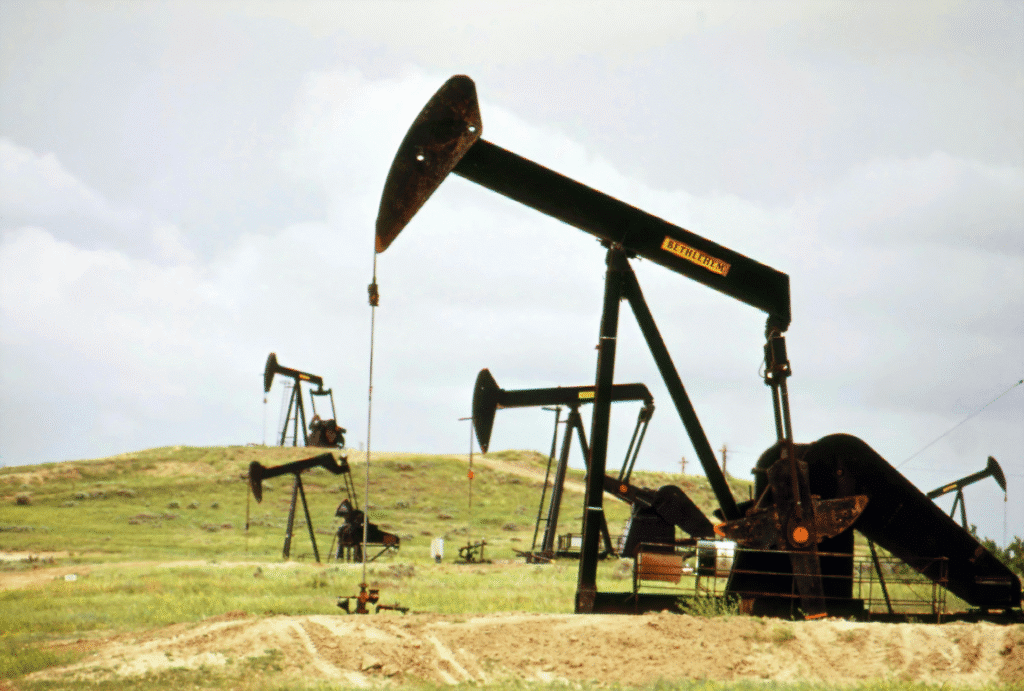Global energy leaders met in Kuala Lumpur, Malaysia, for an important oil industry conference, but their discussions were overshadowed by growing tensions in the Middle East. Recent clashes between Israel and Iran have raised fears of a wider conflict that could disrupt global oil supplies. The situation has put the energy industry on high alert, as any major disruption could lead to higher fuel prices worldwide.
The head of Saudi Arabia’s state-owned oil company, Aramco, spoke about the critical role of oil and gas during times of conflict. In a video message to the conference attendees, CEO Amin Nasser said, “History has shown us that when conflicts occur, the importance of oil and gas can’t be understated.” He added, “We are witnessing this in real time, with threats to energy security continuing to cause global concern.” While he did not directly mention the Israel-Iran clashes, his comments highlighted the growing unease in the energy market.
The conflict escalated when Israel carried out strikes on Iran, including attacks near its nuclear facilities. Israel claimed these strikes were meant to prevent Iran from developing nuclear weapons. The fighting worsened over the weekend when Israel targeted Iran’s South Pars gas field, a major source of the country’s natural gas production. This was the first time Iran’s oil and gas infrastructure had been attacked, causing a partial shutdown in production.

Takayuki Ueda, the CEO of Japanese oil and gas company Inpex, expressed surprise at the attack on South Pars, given its importance to Iran’s energy sector. Speaking to reporters, he said, “The market feels the situation is still under control by both countries, and I hope this situation will not escalate.” He also mentioned that his company’s operations in the United Arab Emirates were running smoothly but warned, “If this turns into a full-fledged war, I think oil prices could rise to more than $100 per barrel.”
Oil prices had already surged by 7% on Friday following the initial attacks but dipped slightly on Monday as markets assessed the situation. Many industry leaders at the conference chose not to comment publicly on the conflict, including OPEC Secretary General Haitham Al Ghais, who avoided questions from reporters.
Meanwhile, energy services company Baker Hughes confirmed that its facilities in the region were still operating. CEO Lorenzo Simonelli told reporters, “It’s a little early, and we’ve got to monitor the situation with regard to what’s the potential impact on supply.” He assured that the company’s employees in the region were safe but acknowledged the uncertainty surrounding the conflict.
The rising tensions have reminded the world of how fragile global energy supplies can be during geopolitical crises. The Middle East is a key region for oil production, and any major disruption could lead to shortages and price spikes. As energy executives gathered in Malaysia, their focus was not just on business discussions but also on how the ongoing conflict might affect the industry.
The situation remains unpredictable, and many are hoping for a peaceful resolution to avoid further instability in oil markets. For now, companies are closely watching developments, preparing for possible supply chain disruptions, and hoping that the conflict does not spread further. The world depends heavily on Middle Eastern oil, and any prolonged conflict could have serious consequences for economies everywhere.
As leaders in the energy sector continue their meetings, the shadow of the Middle East conflict looms large. The discussions are no longer just about business growth and market trends but also about how to navigate a potential crisis. The coming days will be crucial in determining whether the situation stabilizes or worsens, and the global energy industry is bracing for all possibilities.
The oil market has always been sensitive to geopolitical tensions, and the current crisis is no exception. With Iran being a major oil producer and Israel’s actions directly impacting energy infrastructure, the risks are higher than usual. Experts warn that if the conflict expands, it could lead to severe supply shortages, pushing fuel prices to record highs.
For now, the industry is taking a cautious approach, monitoring the situation hour by hour. The hope is that diplomatic efforts will ease tensions before they cause lasting damage to global energy supplies. But as history has shown, in times of conflict, oil and gas remain at the center of both economic and political struggles. The world is watching closely, waiting to see what happens next in this unfolding crisis.
The meetings in Malaysia were supposed to focus on innovation and collaboration in the energy sector, but the reality of war has shifted priorities. Executives are now discussing backup plans, supply chain security, and ways to keep the market stable if the worst happens. The oil industry is no stranger to volatility, but the stakes are higher than ever.
In the end, the hope is for peace and stability, not just for the sake of the energy market but for the millions of people affected by conflict. The world runs on oil, and when tensions rise in key producing regions, everyone feels the impact. The discussions in Kuala Lumpur are a reminder of how interconnected global energy security truly is—and how quickly things can change when conflict erupts.
As the conference continues, the energy leaders in attendance know that their decisions in the coming days could shape the industry’s future. The Middle East crisis is a stark reminder that oil is more than just a commodity—it’s a vital resource that fuels economies and, in times of war, becomes a strategic weapon. The world can only wait and hope for a resolution before the situation spirals out of control.


